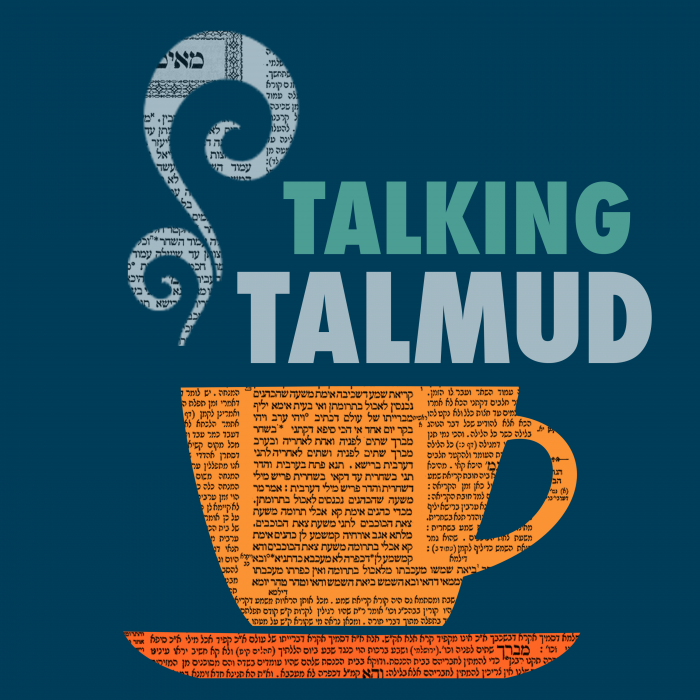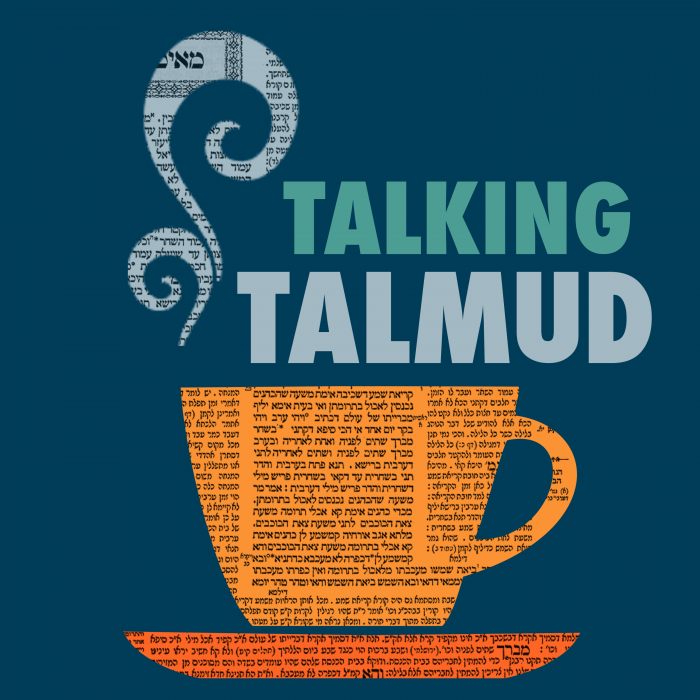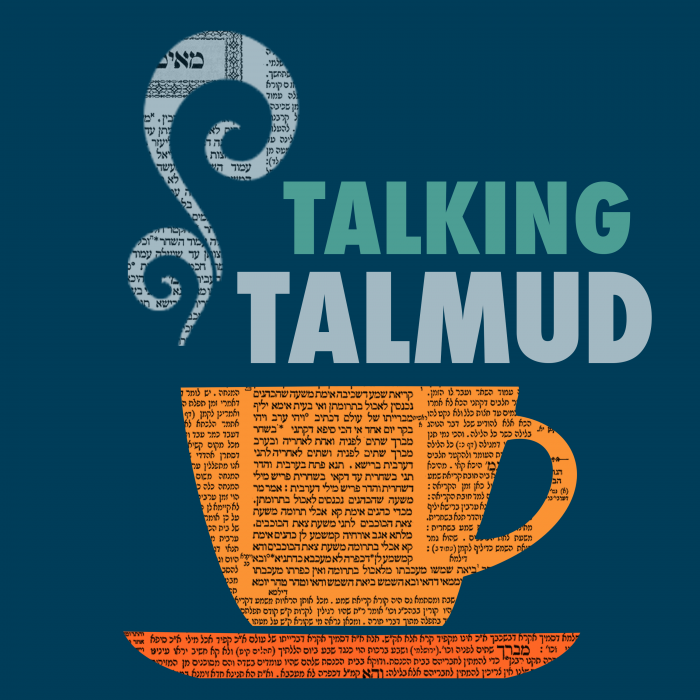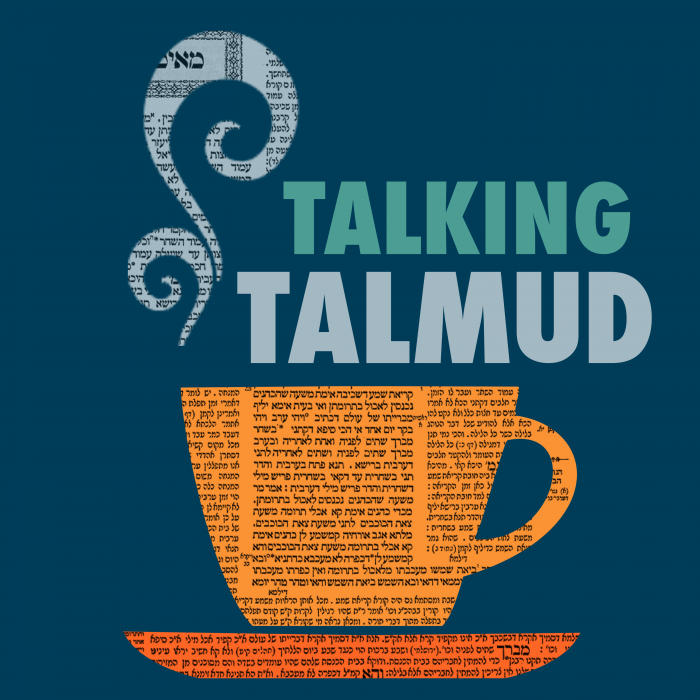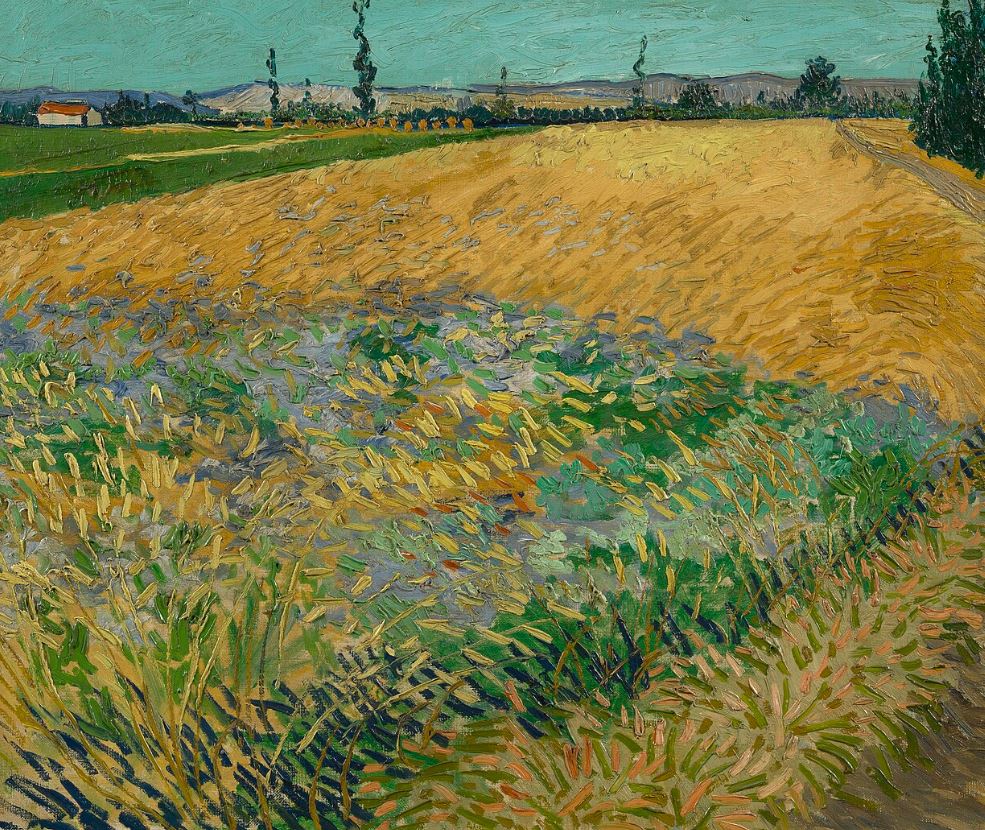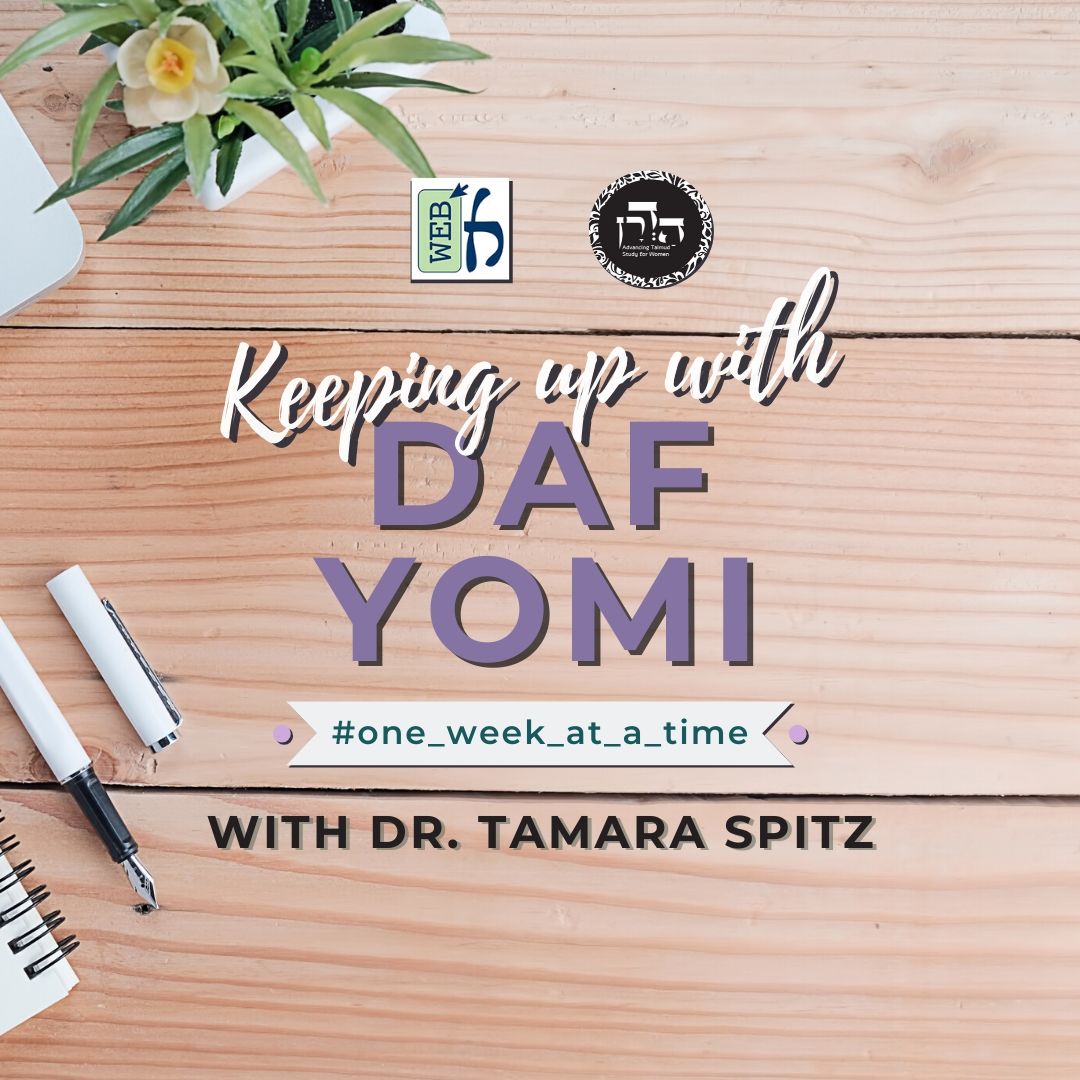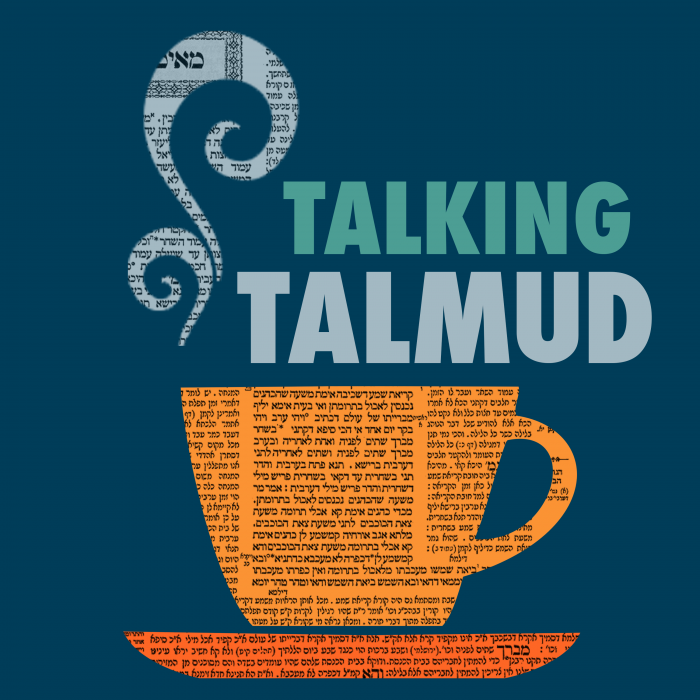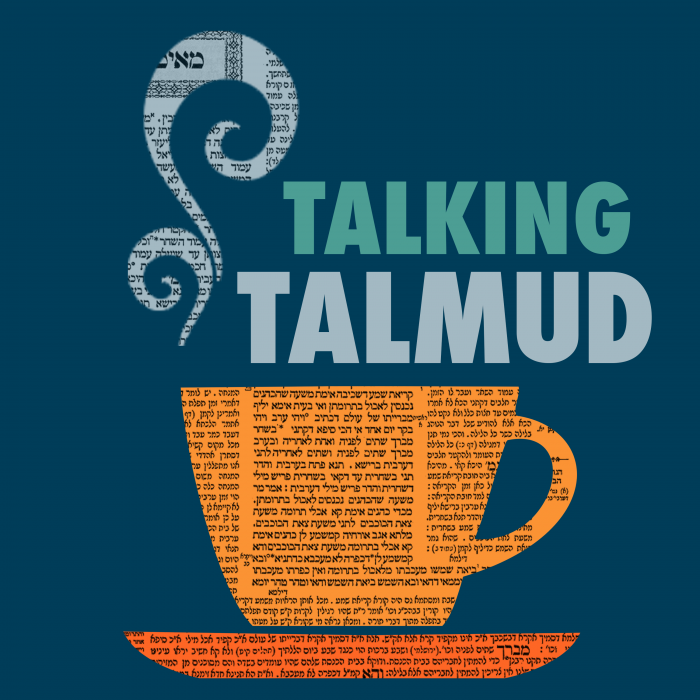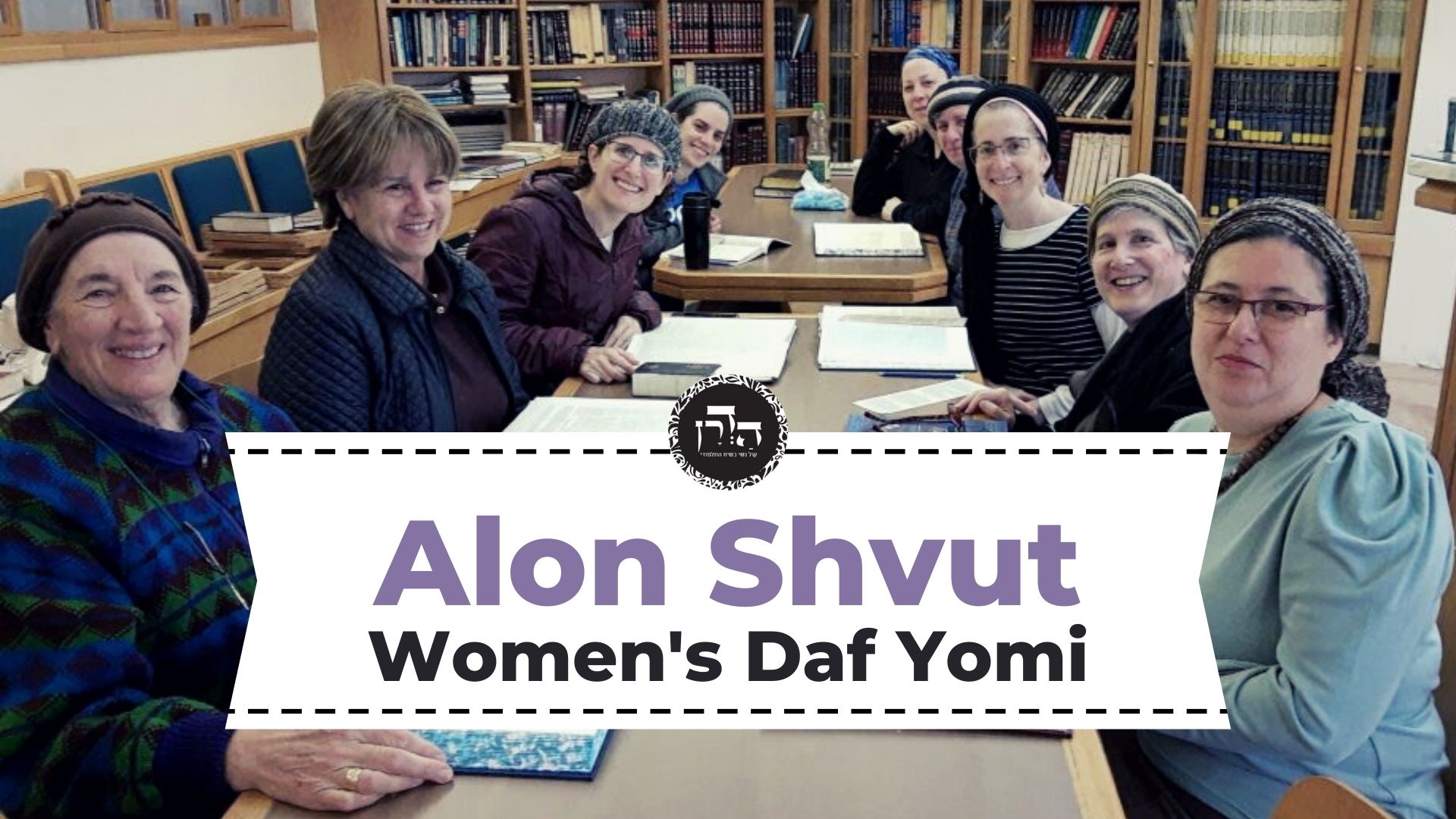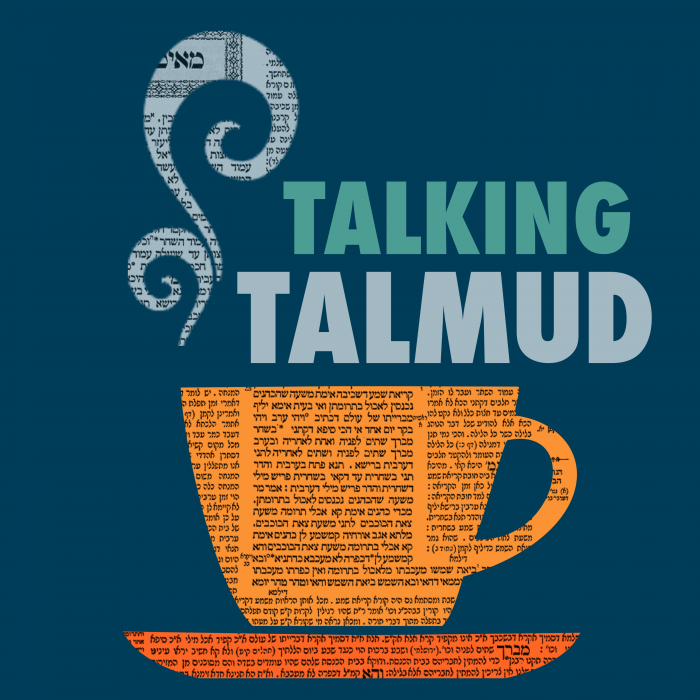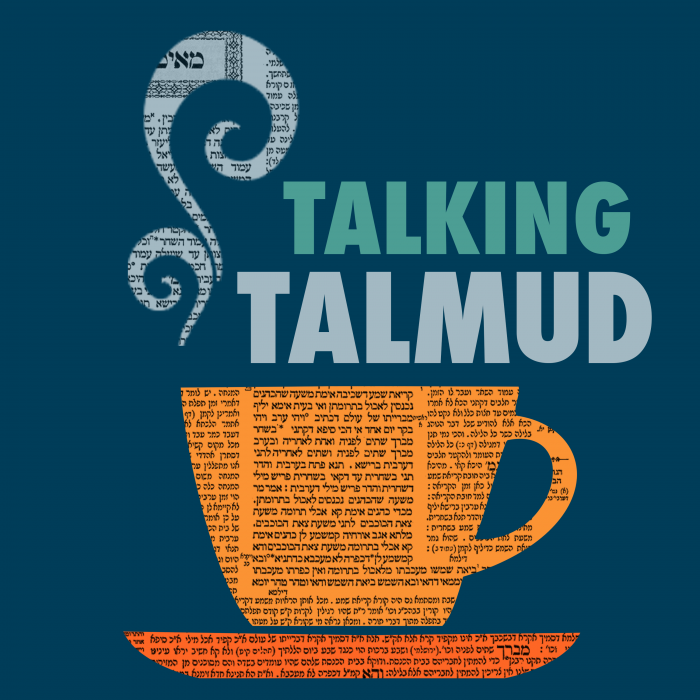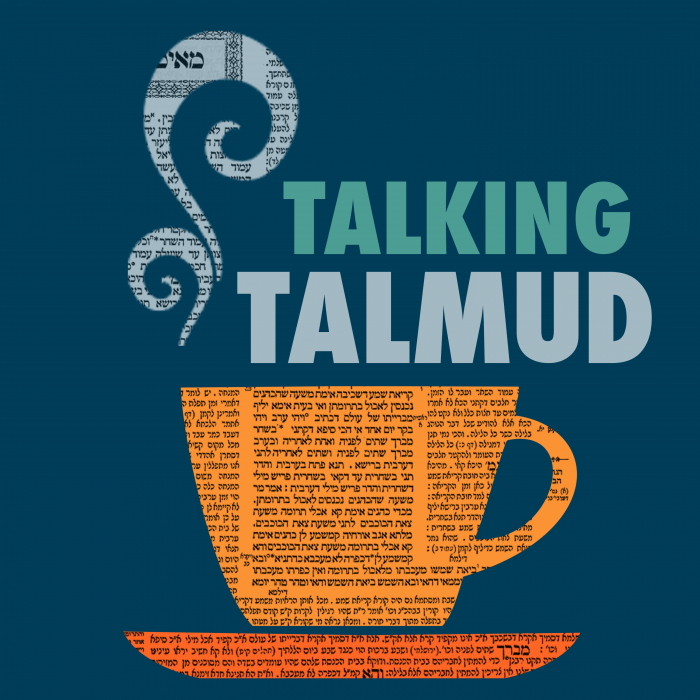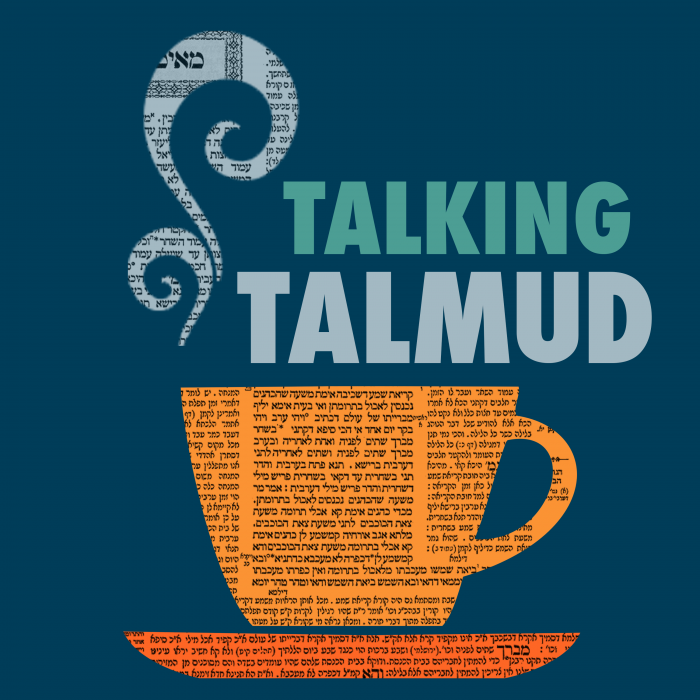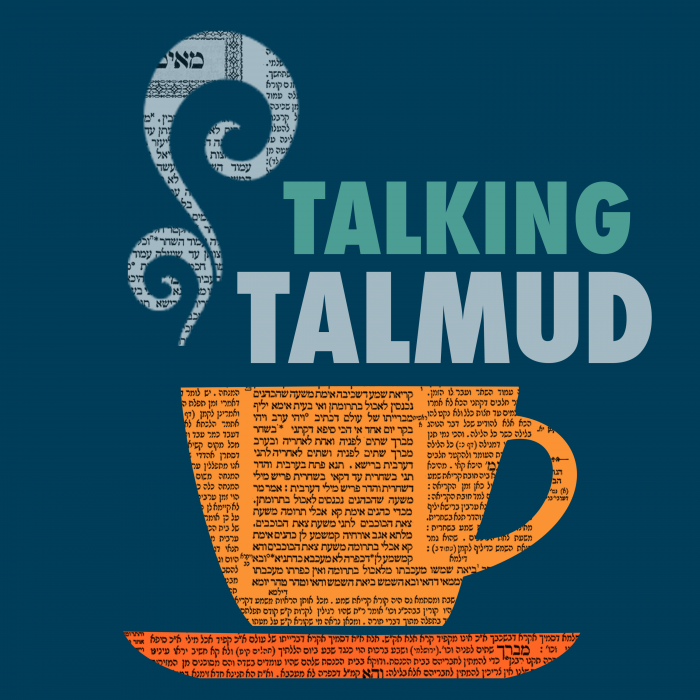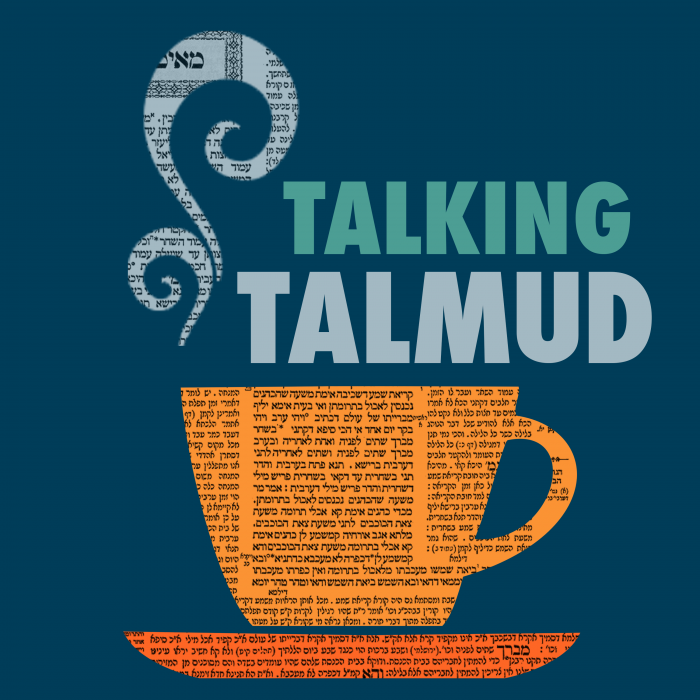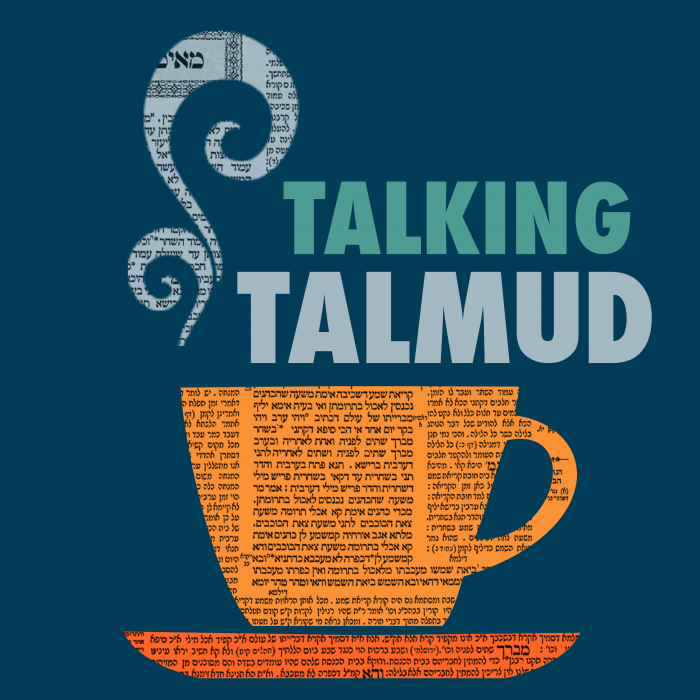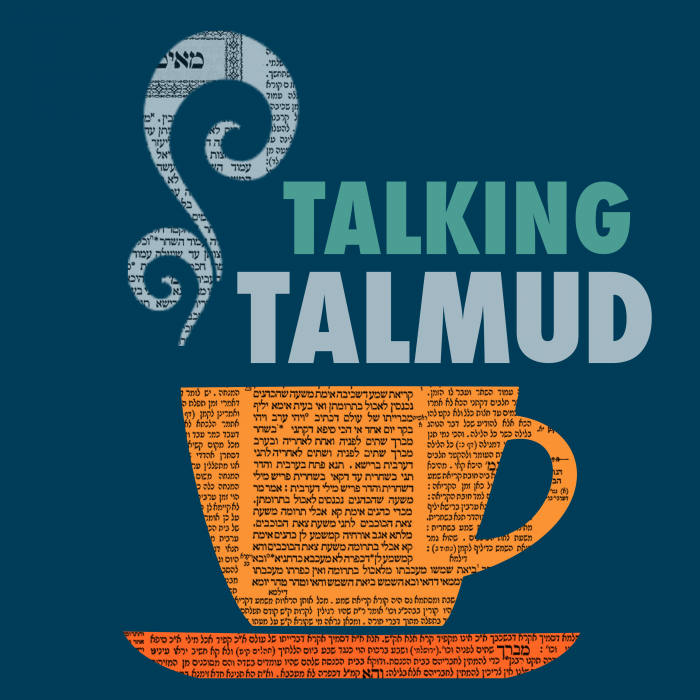From where do we derive that levites and priests are exempt from the mitzva of redeeming their first born donkeys?
This week’s learning is sponsored for the merit and safety of Haymanut (Emuna) Kasau, who was 9 years old when she disappeared from her home in Tzfat two years ago, on the 16th of Adar, 5784 (February 25, 2024), and whose whereabouts remain unknown.
This week’s learning is dedicated of the safety of our nation, the soldiers and citizens of Israel, and for the liberation of the Iranian people. May we soon see the realization of “ליהודים היתה אורה ושמחה וששון ויקר”.
This week’s learning is sponsored for the merit and safety of Haymanut (Emuna) Kasau, who was 9 years old when she disappeared from her home in Tzfat two years ago, on the 16th of Adar, 5784 (February 25, 2024), and whose whereabouts remain unknown.
Want to dedicate learning? Get started here:


Today’s daily daf tools:
This week’s learning is sponsored for the merit and safety of Haymanut (Emuna) Kasau, who was 9 years old when she disappeared from her home in Tzfat two years ago, on the 16th of Adar, 5784 (February 25, 2024), and whose whereabouts remain unknown.
This week’s learning is dedicated of the safety of our nation, the soldiers and citizens of Israel, and for the liberation of the Iranian people. May we soon see the realization of “ליהודים היתה אורה ושמחה וששון ויקר”.
This week’s learning is sponsored for the merit and safety of Haymanut (Emuna) Kasau, who was 9 years old when she disappeared from her home in Tzfat two years ago, on the 16th of Adar, 5784 (February 25, 2024), and whose whereabouts remain unknown.
Today’s daily daf tools:
Delve Deeper
Broaden your understanding of the topics on this daf with classes and podcasts from top women Talmud scholars.
New to Talmud?
Check out our resources designed to help you navigate a page of Talmud – and study at the pace, level and style that fits you.
The Hadran Women’s Tapestry
Meet the diverse women learning Gemara at Hadran and hear their stories.
Bekhorot 4
גְּמָ׳ אִינְהוּ פָּטְרִי?! אָדָם — אָדָם פָּטַר, בְּהֵמָה — בְּהֵמָה פָּטְרָה, דִּכְתִיב: ״קַח אֶת הַלְוִיִּם תַּחַת בְּכוֹר בִּבְנֵי יִשְׂרָאֵל וְאֶת בֶּהֱמַת הַלְוִיִּם תַּחַת בְּהֶמְתָּם״!
GEMARA: In stating: If the priests and Levites rendered exempt the firstborn children and donkeys of the Israelites in the wilderness from being counted firstborns, the mishna indicates that the priests and Levites themselves rendered the animals exempt. The Gemara therefore asks: Did they render the firstborn children and donkeys exempt? With regard to a person, i.e., the Israelite firstborn, the person, i.e., the priests and Levites, rendered them exempt. But with regard to an animal, i.e., the firstborn donkeys of the Israelites, the animal, i.e., the sheep of the priests and Levites, rendered them exempt, as it is written: “Take the Levites in exchange for all the firstborn among the children of Israel, and the animal of the Levites in exchange for their animals” (Numbers 3:45).
אָמַר אַבָּיֵי, הָכִי קָאָמַר: כֹּהֲנִים וּלְוִיִּם פְּטוּרִין בְּהֶמְתָּם מִקַּל וְחוֹמֶר — אִם הִפְקִיעָה בְּהֶמְתָּם שֶׁל לְוִיִּם בְּהֵמָה שֶׁל יִשְׂרָאֵל בַּמִּדְבָּר, דִּין הוּא שֶׁתַּפְקִיעַ אֶת שֶׁל עַצְמָן.
The Gemara answers: Abaye said this is what the mishna is saying: The firstborn animals of priests and Levites are exempt from firstborn status, and that is derived from an a fortiori inference: If the animals of the Levites, i.e., the sheep of the priests and Levites, rendered the firstborn status of the animals of the Israelites in the wilderness abrogated, it is only logical that the sheep of the priests and Levites should render the firstborn status of the priests’ and Levites’ own firstborn donkeys abrogated.
אֲמַר לֵיהּ רָבָא: וְהָא ״פָּטְרוּ״ אִינְהוּ קָתָנֵי!
Rava said to him: How can you interpret the a fortiori inference in the mishna as referring to the animals of the priests and Levites? But doesn’t it teach: They, i.e., the priests and Levites, rendered the firstborn children and donkeys of the Israelites exempt? The reference is clearly to the priests and Levites themselves, not their animals.
וְעוֹד, אִם אִיתָא, אֲפִילּוּ מִבְּכוֹר בְּהֵמָה טְהוֹרָה נִפַּטְרוּ! אַלְּמָה תְּנַן: לֹא נִפְטְרוּ מִבְּכוֹר בְּהֵמָה טְהוֹרָה, אֶלָּא מִפִּדְיוֹן הַבֵּן וּפֶטֶר חֲמוֹר?
Furthermore, if it is so that their animals are exempt due to the a fortiori inference, then the priests and Levites should be exempt even from the halakhot pertaining to a male firstborn of a kosher animal, as their firstborn kosher animals rendered the firstborn kosher animals of the Israelites exempt from firstborn status. Why did we learn in the mishna (13a): The priests and Levites were not exempted from the mitzva of the male firstborn of a kosher animal; rather, they were exempted only from redemption of the firstborn son and the firstborn donkey?
אֶלָּא אָמַר רָבָא, הָכִי קָתָנֵי: כֹּהֲנִים וּלְוִיִּם פָּטְרוּ הֵן עַצְמָן מִקַּל וָחוֹמֶר, אִם הִפְקִיעָה קְדוּשָּׁתָן שֶׁל לְוִיִּם קְדוּשַּׁת שֶׁל יִשְׂרָאֵל בַּמִּדְבָּר, לֹא יַפְקִיעַ אֶת שֶׁל עַצְמָן?
Rather, Rava said this is what the mishna is teaching: Priests and Levites rendered themselves exempt, and that is derived from an a fortiori inference: If the sanctity of the Levites abrogated the sanctity of the firstborn of the Israelites in the wilderness, should it not abrogate the sanctity of the firstborn Levites themselves?
אַשְׁכְּחַן אָדָם, בְּהֵמָה טְמֵאָה מְנָלַן? אָמַר קְרָא: ״אַךְ פָּדֹה תִפְדֶּה אֵת בְּכוֹר הָאָדָם וְאֵת בְּכוֹר הַבְּהֵמָה הַטְּמֵאָה תִּפְדֶּה״, כֹּל שֶׁיֶּשְׁנוֹ בִּבְכוֹר אָדָם — יֶשְׁנוֹ בִּבְכוֹר בְּהֵמָה טְמֵאָה, וְכֹל שֶׁאֵינוֹ בִּבְכוֹר אָדָם — אֵינוֹ בִּבְכוֹר בְּהֵמָה טְמֵאָה.
The Gemara asks: We have found a source for the halakha that the Levites’ personal status as firstborns is abrogated; from where do we derive that their non-kosher animals, i.e., donkeys, do not have the status of firstborns? The Gemara answers that the verse states: “Yet you shall redeem the firstborn of man, and the firstborn of non-kosher animals you shall redeem” (Numbers 18:15). The status of the human firstborn is juxtaposed with that of a non-kosher animal, from which the following principle is derived: Anything that applies to a woman’s firstborn son applies to the firstborn of a non-kosher animal, and anything that does not apply to a woman’s firstborn son does not apply to a non-kosher animal. Therefore, just as firstborn status does not apply to Levites, it does not apply to their donkeys, and they do not need to be redeemed.
אֲמַר לֵיהּ רַב סָפְרָא לְאַבָּיֵי: לְדִידָךְ דְּאָמְרַתְּ בְּהֶמְתָּם, בֶּן לֵוִי דַּהֲוָה לֵיהּ שֶׂה דְּאַפְקַע — לַיפְקַע, דְּלָא הֲוָה לֵיהּ שֶׂה דְּלַיפְקַע — לָא לַיפְקַע!
Rav Safra said to Abaye: According to your opinion, that you say the animals of the Levites did not have firstborn status due to the a fortiori inference, then with regard to a Levite who had a lamb, which abrogated the sanctity of the firstborn donkeys of the Israelites, let the firstborn status of his animals be abrogated. But with regard to one who did not have a lamb that would abrogate their sanctity, the status of his animals should not be abrogated.
בֵּין לְדִידָךְ, בֵּין לְרָבָא, בֶּן חֹדֶשׁ דְּאַפְקַע — לַיפְקַע, פָּחוֹת מִבֶּן חֹדֶשׁ דְּלָא אַפְקַע — לָא לַיפְקַע!
Rav Safra asked Abaye an additional question: According to both you and Rava, since you agree that the firstborn Levites themselves were exempt from being accorded firstborn status because they rendered the sanctity of the Israelite firstborns abrogated, one should conclude that only a firstborn Levite who was at least one month old, who abrogated the sanctity of the Israelite firstborns (see Numbers 3:15), should have his own firstborn status abrogated. But those firstborn Levites who were less than one month old, who did not abrogate the sanctity of the Israelite firstborns, should not have their own firstborn status abrogated.
לְוִיָּה לָא תַּיפְקַע? אַלְּמָה אָמַר רַב אַדָּא בַּר אַהֲבָה: לְוִיָּה שֶׁיָּלְדָה — בְּנָהּ פָּטוּר מֵחֲמֵשׁ סְלָעִים?
Furthermore, the sanctity of a firstborn son born to a female Levite who was married to an Israelite should not be abrogated, as the women were not included among the Levites who were exchanged for the Israelite firstborn. Why, then, does Rav Adda bar Ahava say: With regard to a female Levite who gave birth,her firstborn son is exempt from the obligation of giving five sela coins to the priest to be redeemed?
הָא לָא קַשְׁיָא, כִּדְמָר בְּרֵיהּ דְּרַב יוֹסֵף מִשְּׁמֵיהּ דְּרָבָא, דְּאָמַר: ״פֶּטֶר רֶחֶם״ בְּפֶטֶר רֶחֶם תְּלָה רַחֲמָנָא.
The Gemara answers the last question: That is not difficult, as it is in accordance with the statement of Mar, son of Rav Yosef, in the name of Rava, who says: The fact that the Torah states with regard to the sanctity of the firstborn: “Firstborn of the womb” (Exodus 13:12), indicates that the Merciful One renders the obligations of firstborn status dependent on being the firstborn of the womb, i.e., of the mother. Therefore, the mother’s status as a Levite is sufficient to exempt the child from firstborn status.
וְאַהֲרֹן שֶׁלֹּא הָיָה בְּאוֹתוֹ מִנְיָן — לָא לַיפְקַע! דְּתַנְיָא: לָמָּה נָקוּד עַל ״אַהֲרֹן״ שֶׁבְּחוֹמֶשׁ הַפְּקוּדִים — שֶׁלֹּא הָיָה בְּאוֹתוֹ מִנְיָן.
Rav Safra again challenged the opinions of Abaye and Rava: And Aaron, who was not included in that count of the Levites when they were compared to the number of Israelite firstborns and redeemed from their sanctity as firstborns, should not have his own firstborn status abrogated. As it is taught in a baraita: Why do dots appear over the word “Aaron” in the verse in the book of Numbers: “All that were numbered of the Levites, whom Moses and Aaron numbered” (Numbers 3:39)? It is in order to demonstrate that he was not included in that count of the Levites.
אָמַר קְרָא: ״הַלְוִיִּם״, הוּקְשׁוּ כׇּל הַלְוִיִּם זֶה לָזֶה.
The Gemara answers that the verse states: “The Levites” (Numbers 3:45), to teach that all of the Levites were juxtaposed with each other. Therefore, even a firstborn Levite who did not abrogate the sanctity of the Israelite firstborns himself was still abrogated of his own firstborn sanctity.
כֹּהֲנִים מְנָלַן? כִּדְרַבִּי יְהוֹשֻׁעַ בֶּן לֵוִי, דְּאָמַר רַבִּי יְהוֹשֻׁעַ בֶּן לֵוִי: בְּעֶשְׂרִים וְאַרְבָּעָה מְקוֹמוֹת נִקְרְאוּ כֹּהֲנִים ״לְוִיִּם״, וְזֶה אֶחָד מֵהֶן: ״וְהַכֹּהֲנִים הַלְוִיִּם בְּנֵי צָדוֹק״.
The Gemara asks: From where do we derive that priests, including Aaron, were also subject to that halakha? The Gemara answers: It is in accordance with the statement of Rabbi Yehoshua ben Levi, as Rabbi Yehoshua ben Levi says: In twenty-four places in the Bible the priests are called Levites, and this is one of them: “But the priests the Levites, the sons of Zadok” (Ezekiel 44:15). It is derived from this verse that priests are included in the category of Levites even where they are not mentioned explicitly.
וּלְדוֹרוֹת מְנָלַן? אָמַר קְרָא: ״וְהָיוּ לִי הַלְוִיִּם״, ״וְהָיוּ״ — בַּהֲוָויָיתָן יְהוּ.
The Gemara asks: And from where do we derive that the priests and Levites are exempt from their offspring being counted a firstborn for all generations? The Gemara answers that the verse states: “And the Levites shall be Mine” (Numbers 3:12). The term “shall be” indicates that they shall be, i.e., shall remain, in their current state of sanctity. Just as firstborn status did not apply to the priests or the Levites in the wilderness, it does not apply to priests or Levites in subsequent generations.
וּמִמַּאי דִּבְשֶׂה? אָמַר רַב חִסְדָּא: נֶאֱמַר כֶּסֶף לְדוֹרוֹת, וְנֶאֱמַר שֶׂה לְדוֹרוֹת.
§ Rav Safra (4a) referred to the fact that the sanctity of the firstborn donkeys of the Israelites was abrogated by the lambs of the Levites. The Gemara asks: From where is it derived that this abrogation was accomplished with a lamb? Rav Ḥisda says: The word “silver” is stated with regard to the redemption of a woman’s firstborn son for later generations in the verse: “And their redemption money…shall be, according to your valuation, five shekels of silver” (Numbers 18:16). And in addition, the word “lamb” is stated with regard to the redemption of a firstborn donkey for later generations in the verse: “And every firstborn donkey you shall redeem with a lamb” (Exodus 13:13).
מָה כֶּסֶף הָאָמוּר לְדוֹרוֹת — בּוֹ פָּדוּ לְדוֹרוֹת, בּוֹ פָּדוּ לְאוֹתָהּ שָׁעָה, אַף שֶׂה הָאָמוּר לְדוֹרוֹת — בּוֹ פָּדוּ לְדוֹרוֹת, בּוֹ פָּדוּ בְּאוֹתָהּ שָׁעָה.
Therefore, one can derive that just as concerning silver, which was mentioned with regard to later generations, the Israelites redeemed with it in later generations and they also redeemed with it at that time, as the surplus firstborn in the wilderness were redeemed with five shekels (see Numbers 3:47), so too concerning the lamb, which was mentioned with regard to later generations, they redeemed with it in later generations, and they redeemed with it at that time.
מָה לְכֶסֶף — שָׁכֵן פּוֹדִין בּוֹ הֶקְדֵּשׁוֹת וּמַעֲשֵׂר שֵׁנִי!
The Gemara rejects the comparison: What is notable about silver? It is notable in that it is also used for redemption in other cases, as one can redeem consecrated property and second-tithe produce with it, which is not the halakha with regard to lambs.
אֶלָּא, אָמַר קְרָא: ״אַךְ פָּדֹה תִפְדֶּה אֶת בְּכוֹר הָאָדָם וְאֵת בְּכוֹר הַבְּהֵמָה הַטְּמֵאָה תִּפְדֶּה״, מָה בְּכוֹר אָדָם לֹא חִלַּקְתָּ בֵּין לְדוֹרוֹת בֵּין לְאוֹתָהּ שָׁעָה — בְּכֶסֶף, אַף בְּהֵמָה טְמֵאָה לֹא תַּחְלוֹק בּוֹ בֵּין לְדוֹרוֹת בֵּין לְאוֹתָהּ שָׁעָה — בְּשֶׂה.
Rather, it can be derived from the fact that the verse states: “Yet you shall redeem the firstborn of man, and the firstborn of non-kosher animals you shall redeem” (Numbers 18:15). The juxtaposition of the two cases demonstrates that just as with regard to a woman’s firstborn son you have not distinguished between the halakha for later generations and the halakha for that time, as the redemption is performed with silver in both cases, so too, with regard to the redemption of a non-kosher animal, you should not distinguish between the halakha for later generations and for that time, as it must be performed with a lamb in both situations.
אָמַר רַבִּי חֲנִינָא: שֶׂה אֶחָד שֶׁל בֶּן לֵוִי פָּטַר כַּמָּה פִּטְרֵי חֲמוֹרִים מִיִּשְׂרָאֵל. אָמַר אַבָּיֵי: תֵּדַע, שֶׁהֲרֵי מָנָה הַכָּתוּב עוֹדְפִים בְּאָדָם, וְלֹא מָנָה עוֹדְפִין בִּבְהֵמָה.
§ The Gemara resumes its discussion of the procedure for the redemption of the firstborn donkeys in the wilderness: Rabbi Ḥanina says that one lamb of a Levite in the wilderness rendered several firstborn donkeys of the Israelites exempt from the obligations of firstborn status. Abaye says: Know that this is so, as the verse enumerates the surplus of firstborn humans when it says that there were 273 more firstborn Israelites than Levites who needed to be redeemed with silver (see Numbers 3:46); but the verse does not enumerate any surplus of Israelite animals.
מִמַּאי? דִּילְמָא לָא הָוֵי נְפִישִׁי לְהוּ בְּהֵמוֹת טוּבָא? לָא סָלְקָא דַּעְתָּךְ! דִּכְתִיב: ״וּמִקְנֶה רַב הָיָה לִבְנֵי רְאוּבֵן וְלִבְנֵי גָד״.
The Gemara asks: From where is this proven? Perhaps the Israelites did not have many animals, and their firstborn donkeys did not outnumber the lambs of the Levites. The Gemara answers: Do not let this possibility enter your mind, as it is written: “Now the children of Reuben and the children of Gad had a very great multitude of livestock” (Numbers 32:1).
דִּילְמָא אֲפִילּוּ הָכִי, פְּשׁוּטִים דִּלְוִיִּם הֲווֹ קָיְימִי לְבַהֲדֵי בְּכוֹרֵי יִשְׂרָאֵל! אָמַר קְרָא: ״וְאֶת בֶּהֱמַת הַלְוִיִּם תַּחַת בְּהֶמְתָּם״, בְּהֵמָה אַחַת תַּחַת בְּהֵמוֹת הַרְבֵּה.
The Gemara challenges: Perhaps even so, the number of ordinary animals of the Levites that were not firstborn corresponded to the number of firstborn animals belonging to the Israelites. The Gemara explains that the verse states: “Take the Levites in exchange for all the firstborn among the children of Israel, and the animal of [behemat] the Levites in exchange for their animals [behemtam]” (Numbers 3:45). The use of the word behemat in the singular indicates that the transaction involved one animal of the Levites in exchange for many animals of the Israelites.
וְאֵימָא בְּהֵמָה רַבָּה? אִם כֵּן, לִיכְתּוֹב קְרָא אוֹ ״בְּהֵמָה תַּחַת בְּהֵמָה״ אוֹ ״בְּהֶמְתָּם תַּחַת בְּהֶמְתָּם״! מַאי ״בֶּהֱמַת… תֵּחַת בְּהֶמְתָּם״? שְׁמַע מִינַּהּ חַד פָּטַר טוּבָא.
The Gemara asks: And say the word behemat is referring to many animals, as in the phrase: “And many animals [uvhema rabba]” (Jonah 4:11). The Gemara answers: If so, let the verse write either: Behema of the Levites in exchange for behema, or: Behemtam in exchange for behemtam. What is the significance of the phrase “behemat the Levites in exchange for behemtam”? Learn from it that one lamb of a Levite rendered many donkeys of Israelites exempt.
אָמַר רָבָא, אַף אֲנַן נָמֵי תְּנֵינָא: וּפוֹדֶה בּוֹ פְּעָמִים הַרְבֵּה. וְרַבִּי חֲנִינָא טַעְמָא דְמַתְנִיתִין מְפָרֵשׁ, וְהָכִי קָאָמַר: מַאי טַעְמָא פּוֹדֶה בּוֹ פְּעָמִים הַרְבֵּה? מִשּׁוּם דְּשֶׂה אֶחָד שֶׁל בֶּן לֵוִי פּוֹטֵר כַּמָּה פִּטְרֵי חֲמוֹרִים שֶׁל יִשְׂרָאֵל.
Rava said: We learn in a mishna (9a), as well, a support for Rabbi Ḥanina’s statement: And if the priest returns the lamb to him, he may redeem firstborn donkeys with it many times if he repurchases the lamb from the priest each time upon redeeming a donkey. And actually, Rabbi Ḥanina is not offering his own opinion, but is rather explaining the reasoning of the mishna, and this is what he is saying: What is the reason that the owner may redeem firstborn donkeys with the same lamb many times? It is because one lamb of a Levite renders exempt several firstborn donkeys belonging to an Israelite.
אִיתְּמַר, רַבִּי יוֹחָנָן אָמַר: קָדְשׁוּ בְּכוֹרוֹת בַּמִּדְבָּר, וְרֵישׁ לָקִישׁ אָמַר: לֹא קָדְשׁוּ בְּכוֹרוֹת בַּמִּדְבָּר.
§ It was stated with regard to the sanctity of the firstborn in the wilderness: Rabbi Yoḥanan says that both firstborn animals and firstborn sons born in the wilderness were sanctified, and Reish Lakish says: The firstborn that were born in the wilderness were not sanctified.
רַבִּי יוֹחָנָן אָמַר: קָדְשׁוּ בְּכוֹרוֹת בַּמִּדְבָּר, דְּרַחֲמָנָא אָמַר לִיקְדְּשׁוּ, דִּכְתִיב: ״קַדֶּשׁ לִי כׇל בְּכוֹר״.
The Gemara explains the reason for each opinion: Rabbi Yoḥanan says that the firstborn that were born in the wilderness were sanctified, since the Merciful One states they should be sanctified, as it is written prior to the Jews leaving Egypt: “Sanctify to Me all the firstborn” (Exodus 13:2).
וְרֵישׁ לָקִישׁ אָמַר: לֹא קָדְשׁוּ בְּכוֹרוֹת בַּמִּדְבָּר, מִדִּכְתִיב: ״וְהָיָה כִּי יְבִיאֲךָ״, וּכְתִיב בָּתְרֵיהּ: ״וְהַעֲבַרְתָּ״, מִכְּלָל דְּמֵעִיקָּרָא לָא קְדוּשׁ.
And Reish Lakish says: Although the firstborn in Egypt were sanctified, the firstborn that were born in the wilderness were not sanctified, as it is written: “And it shall be when the Lord shall bring you into the land of the Canaanites” (Exodus 13:11), and it is written afterward: “And you shall set apart all firstborn of the womb to the Lord” (Exodus 13:12). By inference, it can be derived that initially, before the Jewish people entered Eretz Yisrael, those that were born in the wilderness were not sanctified.
אֵיתִיבֵיהּ רַבִּי יוֹחָנָן לְרֵישׁ לָקִישׁ: עַד שֶׁלֹּא הוּקַם הַמִּשְׁכָּן הָיוּ בָּמוֹת מוּתָּרוֹת וַעֲבוֹדָה בִּבְכוֹרוֹת! אֲמַר לֵיהּ: בְּאוֹתָן שֶׁיָּצְאוּ מִמִּצְרָיִם.
Rabbi Yoḥanan raised an objection to the opinion of Reish Lakish from a mishna (Zevaḥim 112b): Until the Tabernacle was established, private altars were permitted and the sacrificial service was performed by the firstborn. Clearly, then, the firstborn in the wilderness were sanctified. Reish Lakish said to him: That mishna is referring to those firstborn who left Egypt, who performed the sacrificial service, and not to the ones born in the wilderness.
הָכִי נָמֵי מִסְתַּבְּרָא, דְּאִי לָא תֵּימָא הָכִי, בֶּן שָׁנָה בַּר מֶיעְבַּד עֲבוֹדָה הוּא?
The Gemara comments: This too stands to reason, as if you do not say so, is an infant in its first year capable of performing the sacrificial service? Since the Tabernacle was established only a year after the Jewish people left Egypt, clearly the firstborn who performed the sacrificial service at that time were born in Egypt.
וּדְקָאָרֵי לַהּ, מַאי קָאָרֵי לַהּ?
The Gemara asks: And he who asked it, why did he ask it? Isn’t it obvious that the firstborn born in Egypt performed the sacrificial service in the first years of the Tabernacle?
הָכִי קָא קַשְׁיָא לֵיהּ: אִי אָמְרַתְּ בִּשְׁלָמָא דְּלָא פָּסֵיק קְדוּשְׁתַּיְיהוּ — הָנָךְ דְּמֵעִיקָּרָא נָמֵי לָא פָּקְעָא קְדוּשְׁתַּיְיהוּ, אֶלָּא אִי אָמְרַתְּ דְּפָסֵק קְדוּשְׁתַּיְיהוּ — הָנָךְ דְּמֵעִיקָּרָא נָמֵי פָּקְעָא לֵיהּ קְדוּשְׁתַּיְיהוּ.
The Gemara answers: This was his difficulty: Granted, if you say that the sanctity of the firstborn did not cease from the time that the mitzva of: “Sanctify to Me all the firstborn” (Exodus 13:2), was given in Egypt, and those born in the wilderness were also sanctified, then with regard to these firstborn who were originally in Egypt, their sanctity also did not lapse. Therefore, they could perform the sacrificial service in the first years of the Tabernacle. But if you say that the sanctity of the firstborn ceased and the firstborn born in the wilderness were not sanctified, then with regard to these firstborn that were originally born in Egypt, their sanctity also lapsed.
וְאִידַּךְ: דִּקְדוּשׁ — קְדוּשׁ, דְּלָא קְדוּשׁ — לָא קְדוּשׁ.
And the other amora, Reish Lakish, responded: No proof may be derived from here, as those who were sanctified in Egypt were sanctified and did not then lose their sanctity in the wilderness, while those who were not sanctified in Egypt were not sanctified in the wilderness.
אֵיתִיבֵיהּ: אוֹתוֹ הַיּוֹם שֶׁהוּקַם הַמִּשְׁכָּן, קָרְבוּ בּוֹ לָהֶם בְּיִשְׂרָאֵל נְדָרִים וּנְדָבוֹת, חַטָּאוֹת וַאֲשָׁמוֹת, בְּכוֹרוֹת וּמַעַשְׂרוֹת. הָכִי נָמֵי — בְּאוֹתָן שֶׁיָּצְאוּ מִמִּצְרָיִם. וּמִינַּהּ: אוֹתוֹ הַיּוֹם הוּא דִּקְרוּב, מִיכָּן וְאֵילָךְ לָא קְרוּב!
Rabbi Yoḥanan raised an objection to the opinion of Reish Lakish from a baraita: On the same day that the Tabernacle was established, many types of offerings were sacrificed by the Jewish people, including vow offerings and gift offerings, sin offerings and guilt offerings, kosher firstborn animal offerings and animal tithe offerings. If firstborn animal offerings were sacrificed in the wilderness, then evidently the firstborn animals were sanctified in the wilderness. Reish Lakish answered him: This is referring also to those firstborn animals that left Egypt and were already sanctified there. The Gemara comments: And it may be understood from the baraita itself that the opinion of Reish Lakish is correct, as one can infer from it: That day is when the firstborn were sacrificed, but beyond that they were not sacrificed.
אִיכָּא דְּאָמְרִי: אֵיתִיבֵיהּ רֵישׁ לָקִישׁ לְרַבִּי יוֹחָנָן: אוֹתוֹ הַיּוֹם שֶׁהוּקַם הַמִּשְׁכָּן קָרְבוּ לָהֶם יִשְׂרָאֵל נְדָרִים וּנְדָבוֹת חַטָּאוֹת וַאֲשָׁמוֹת בְּכוֹרוֹת וּמַעַשְׂרוֹת. אוֹתוֹ הַיּוֹם — אִין, מִיכָּן וְאֵילָךְ — לָא! אֵימָא: מֵאוֹתוֹ הַיּוֹם וְאֵילָךְ.
There are those who say the discussion proceeded as follows: Reish Lakish raised an objection to the opinion of Rabbi Yoḥanan: On the same day that the Tabernacle was established, many types of offerings were sacrificed by the Jewish people, including vow offerings and gift offerings, sin offerings and guilt offerings, kosher firstborn animal offerings and animal tithe offerings. It may be inferred that on that day, yes, the firstborn animals were sacrificed, but beyond that the firstborn animals were not sacrificed, indicating that the male firstborn animals in the wilderness were not sanctified. The Gemara responds: One can say that the baraita means that from that day onward, all of those offerings were sacrificed.
וּמַאי קָמַשְׁמַע לַן? מֵאוֹתוֹ הַיּוֹם — אִין, מֵעִיקָּרָא — לָא. אַלְמָא חוֹבוֹת בְּבָמָה לָא קְרוּב.
The Gemara asks: And what, then, is the baraita teaching us? The Gemara answers: It is teaching that from that day onward, yes, the Jewish people brought those offerings, but initially, prior to the establishment of the Tabernacle, they were not brought. Evidently, obligatory offerings such as these were not sacrificed on a private altar; only voluntary offerings were sacrificed on such altars.
תָּא שְׁמַע, נִמְצֵאתָ אַתָּה אוֹמֵר: בִּשְׁלֹשָׁה מְקוֹמוֹת קָדְשׁוּ בְּכוֹרוֹת לְיִשְׂרָאֵל — בְּמִצְרַיִם, וּבַמִּדְבָּר, וּבִכְנִיסָתָן יִשְׂרָאֵל לְאֶרֶץ. בְּמִצְרַיִם מַהוּ אוֹמֵר? ״קַדֶּשׁ לִי כׇל בְּכוֹר״. בַּמִּדְבָּר הוּא אוֹמֵר: ״כִּי לִי כׇל בְּכוֹר בִּבְנֵי יִשְׂרָאֵל״. בִּכְנִיסָתָם לָאָרֶץ הוּא אוֹמֵר: ״וְהָיָה כִּי יְבִיאֲךָ… וְהַעֲבַרְתָּ״.
The Gemara suggests: Come and hear a proof for the opinion of Rabbi Yoḥanan from a baraita: You are found to be saying that the firstborn of the Jewish people were sanctified in three locations: In Egypt, and in the wilderness, and upon the entry of the Jewish people into Eretz Yisrael. In Egypt, what does the verse state? “Sanctify to Me all the firstborn” (Exodus 13:2). In the wilderness, the verse states: “For all the firstborn among the children of Israel are Mine” (Numbers 8:17). With regard to their entry into Eretz Yisrael, the verse states: “And it shall be when the Lord shall bring you into the land of the Canaanites…and you shall set apart all firstborn of the womb to the Lord” (Exodus 13:11–12). This baraita indicates that the firstborn born in the wilderness were sanctified.
אָמַר רַב נַחְמָן בַּר יִצְחָק: בִּשְׁלֹשָׁה מְקוֹמוֹת הוּזְהֲרוּ עַל הַבְּכוֹרוֹת לִיקְדַּשׁ, וְלֹא קָדְשׁוּ. וּבְמִצְרַיִם נָמֵי לָא קְדוּשׁ? הָא קָאָמְרִינַן דִּקְדוּשׁ! הָכִי אָמַר: מֵהֶן קָדְשׁוּ, וּמֵהֶן לֹא קָדְשׁוּ.
The Gemara rejects this proof. Rav Naḥman bar Yitzḥak said: The baraita means that the Jewish people were commanded in three locations with regard to the firstborn, that is, to sanctify them, but they did not sanctify them in practice. The Gemara asks: But according to this, were they not sanctified in Egypt either? Didn’t we say that they were sanctified even according to Reish Lakish? The Gemara answers: This is what the tanna is saying: They were commanded in three locations to sanctify the firstborn. In some of those cases, i.e., in Egypt and in Eretz Yisrael, they sanctified them, and in some of them, i.e., in the wilderness, they did not sanctify them.
מַתְקֵיף לַהּ רַב פָּפָּא: וּבַמִּדְבָּר לֹא קָדְשׁוּ? וְהָכְתִיב: ״פְּקֹד כׇּל בְּכֹר זָכָר לִבְנֵי יִשְׂרָאֵל״! אֶלָּא, אִי אִיתְּמַר הָכִי אִיתְּמַר: רַבִּי יוֹחָנָן אָמַר: קָדְשׁוּ וְלֹא פָּסְקוּ, וְרֵישׁ לָקִישׁ אָמַר: קָדְשׁוּ
Rav Pappa objects to this: And did they not sanctify them in the wilderness? But isn’t it written: “Count all the firstborn males of the children of Israel from a month old and upward” (Numbers 3:40), a commandment that was fulfilled (see Numbers 3:42)? The firstborn referred to certainly include those born in the wilderness, as this counting occurred in the second year after the exodus from Egypt. Rather, if a dispute between Rabbi Yoḥanan and Reish Lakish was stated with regard to this matter, it was stated like this: Rabbi Yoḥanan says the firstborn that were born in the wilderness were sanctified and their sanctity did not cease, and Reish Lakish says they were sanctified only until the time of the counting referred to above,


